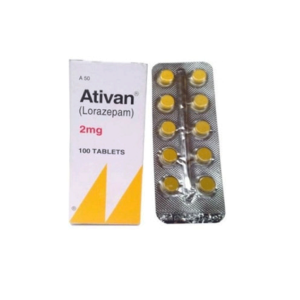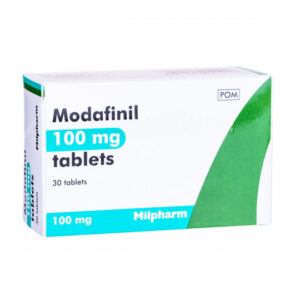Description
Co-dydramol
What is Co-dydramol?
- Co-dydramol 10/500mg is a pain relief medication that contains two different drugs: paracetamol and dihydrocodeine
- Paracetamol is commonly used to treat the pain associated with injuries or illnesses
- Dihydrocodeine is a type of semi-synthetic opiate pain killer used to relieve post-operative pain or the pain associated with severe illness or injury
- Co-dydramol is sometimes known by the brand names Paramol and Remedeine Forte
- Opiate pain relief can sometimes become addictive when taken for a long time, so your prescriber will advise how long you should expect to take it for, and how to stop it Co-dydramol 10/500mg
- It is important to read the patient leaflet for a full list of side effects and cautions.
How Does Co-dydramol Work?
The two active ingredients in co-dydramol (paracetamol and dihydrocodeine) work to minimise pain.
Co-dydramol is a form of opioid pain relief. Opioids work by blocking the pain signals before they can reach the brain. Opioids are therefore an effective form of pain relief as your sensation of pain is reduced or eliminated.
Paracetamol has been used for many years, but its mechanism of action is still poorly understood. It is thought that it blocks the chemical messengers of pain, minimising the way that we experience the pain.
Taking two different forms of pain relief can be an effective way of managing pain. Taking co-dydramol means you can conveniently minimise the number of tablets you need to take to ensure adequate pain relief.
How is Co-dydramol Taken?
Co-dydramol Tablets
Co-dydramol is available in tablet form in various strengths.
Each tablet should be swallowed whole with water, with or just after a meal. Taking it on a full stomach can help to reduce the risk of nausea.
What is the dosage of Co-dydramol?
Co-dydramol 10/500mg
Co-dydramol is available in four different strengths. The dose of paracetamol is the same in every tablet, but the dose of dihydrocodeine varies between the four strengths.
The following strengths of co-dydramol are available:
- 500mg of paracetamol and 7.46mg of dihydrocodeine
- 500mg of paracetamol and 10mg of dihydrocodeine
- 500mg of paracetamol and 20mg of dihydrocodeine
- 500mg of paracetamol and 30mg of dihydrocodeine.
The usual dose of co-dydramol is one or two tablets of any strength every four to six hours. No more than eight tablets should be taken in a 24 hour period.
It is common for two tablets to be taken at a time. This equals a dose of 1000mg (1 gram) of paracetamol, which is the maximum recommended amount of paracetamol per dose. You must therefore not take any other paracetamol containing medications whilst taking co-dydramol.
Co-dydramol can become additive when taken long term. Over a long period, some people can become dependent on opioid medications or experience symptoms of withdrawal when stopping them. Your prescriber will talk to you about your likely course of treatment and when you can expect to stop taking co-dydramol to avoid dependence.
What are the side effects of co-dydramol?
Like all medications, co-dydramol can have some side effects. The most common side effects include:
- Nausea or vomiting (feeling sick or being sick)
- Constipation
- Feeling sleepy
- Headaches.
These side effects are likely to settle down, but if they persist or are troublesome you should speak to your doctor.
Rarely, some people experience a more severe side effect when taking co-dydramol. These rare side effects include:
- Trouble passing urine (peeing)
- Dizziness
- Skin rashes and itching
- Changes to vision.
If any of these side effects occur, you should speak to a doctor straight away.
If you have a severe allergic reaction (anaphylaxis) including breathlessness, lip or tongue swelling, call 999 immediately.
What warnings does Co-dydramol come with?
Co-dydramol may not be suitable for everyone. You should tell your doctor if you:
- Have asthma or another lung disease
- Have liver or kidney problems
- Have adrenal gland problems
- Have, or have ever had, a head injury
- Have seizures or fits
- Have thyroid disease
- Have ever had obstructive sleep apnoea, or your tonsils or adenoids removed
- Have irritable bowel syndrome (IBS) or inflammatory bowel disease (IBD) such as Crohn’s disease or ulcerative colitis
- Have alcohol dependence or drink more than 14 units of alcohol each week
- Have myasthenia gravis
- Have had an allergic reaction to a medication in the past
- Are pregnant, trying to conceive, or breastfeeding.
Some medications can interact with co-dydramol. You may be advised that co-dydramol will not suit you if you already take:
- Antidepressants
- Sleeping tablets
- Anti-sickness medications
- Antihistamines or allergy medications
- Medicines for epilepsy
- Medicines for anxiety
- Antipsychotic medications
- Blood thinning medications such as warfarin or heparin
- Antibiotics for tuberculosis.
You should also tell your prescriber about any herbal remedies or supplements you take. This will allow your prescriber to check that co-dydramol will not interact with them.
It is important that your doctor checks that co-dydramol will suit you. Your doctor should complete a thorough health questionnaire and review your current medications before prescribing this medication.
Where to Buy Co-dydramol Online?
Buy Co-dydramol for Pain Relief
You can safely buy co-dydramol online here at Legend Meds. Our purchase process will guide you through getting the necessary prescription and receiving your order online through a UK-located pharmacy Co-dydramol 10/500mg








Reviews
There are no reviews yet.